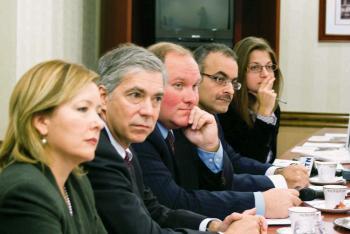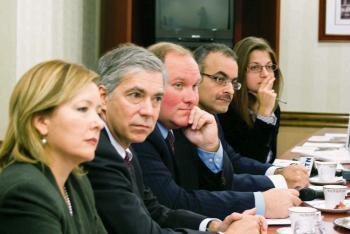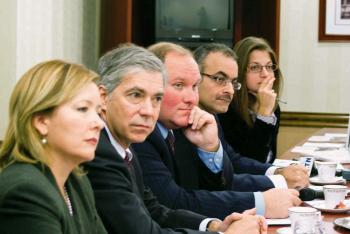NEW YORK—Israel’s press freedom is in free fall and journalists are being murdered in Russia and Mexico, according to Reporters Without Borders (RSF). RSF released its World Press Freedom Index Tuesday and there was a general downward trend in the 175 countries surveyed.
European countries took the top 13 spots, yet there is a troubling decline overall, according to Clothilde Le Coz, Reporters Without Borders’ Washington director.
“Not only because of the physical assaults journalist are victim of, but because these countries are adapting and passing laws that are dangerous for freedom of the press and freedom of expression,” she said at the Overseas Press Club in New York. Five media organizations covered the event.
“The Internet is really a big issue in those [European] countries—the laws they are adopting in terms of Internet freedom are restrictive for freedom of speech in general.”
Israel sank 47 places in the index to the 93rd position, while the usual suspects such as Eritrea, Burma, China, and Iran sat at the bottom.
The U.S. jumped 20 ranks this year, from 40th to 20th, which was “amazing progress” to Le Coz. “Most of all it is due to the fact that journalists in the U.S. don’t get into jail for national security matters, as they use to during the Bush era.” She said there were still concerns over protecting journalists’ sources.
Five U.S. journalists were detained in foreign countries last year—one of the most recent cases was Laura Ling and Euna Lee who were held in North Korea.







